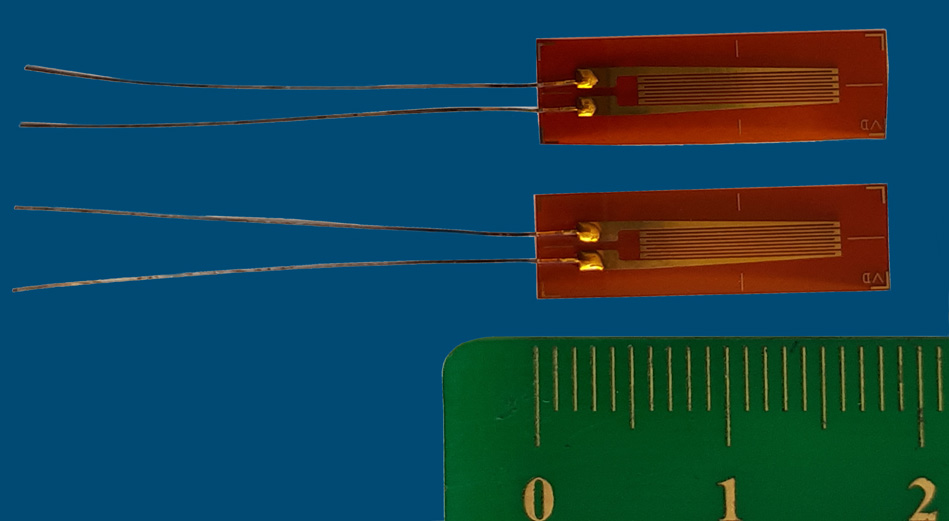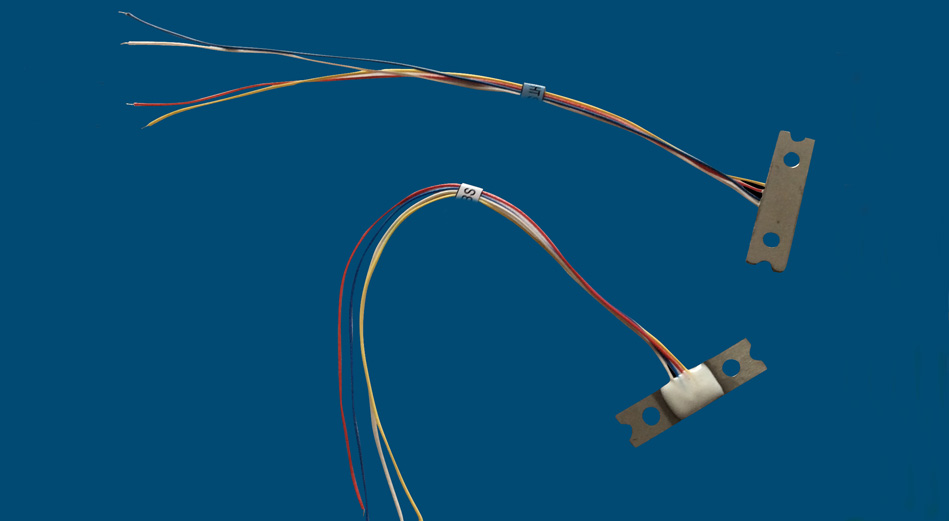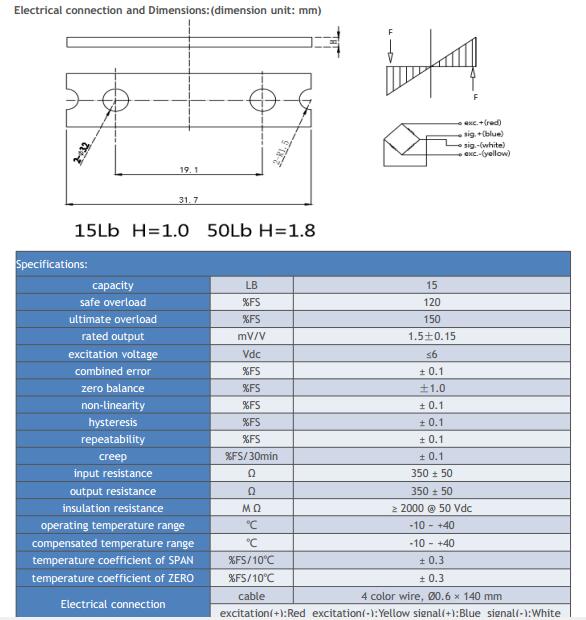Strain gauge (load cell; from Lat. tensus is a sensor that converts the amount of strain into a signal that is convenient to measure (generally electrical one), main component of a strain gauge (a device to measure deformations). There are many ways to measure deformations: strain-resistive [1], piezoelectric[2], opto-polarizing[3], piezoresistive, fiber-optic[4], or by simply reading indications from the ruler of a mechanical load cell. Among electronic load cells, strain-resistive sensors have become the most widespread.
A strain gauge is usually a special elastic structure with a strain gauge and other auxiliary parts attached to it. After calibration, changing the resistance of the strain gauge, it is possible to calculate the degree of deformation, which will be proportional to the force applied to the structure.
Foil load cells type TKF01-10-100
TKF01-10-100
Resistance 100.0 ±0.1 ohms
Sensitivity To = 2.10
The operating temperature range is -40...+80 °C
Thermal compensation for a material with α 12x106grad1
 ТКФ01-10-100
ТКФ01-10-100
Industrial load cell T230-full bridge with thermal compensation

Technical characteristics:

